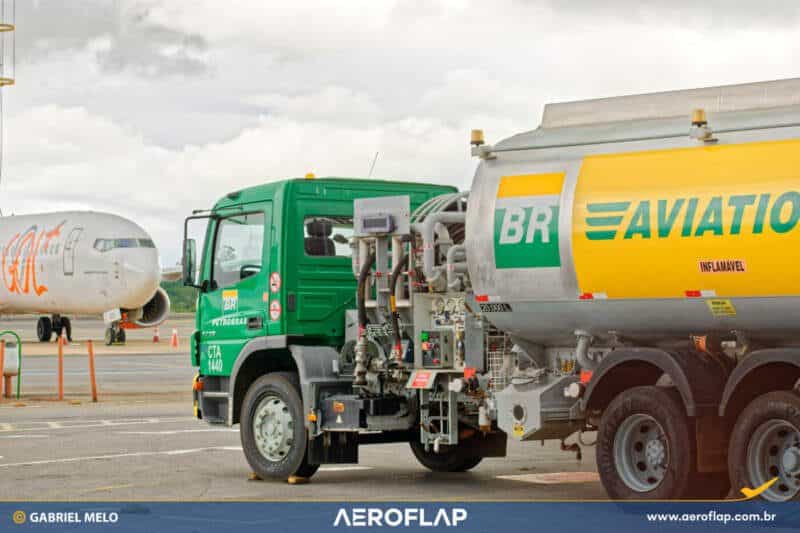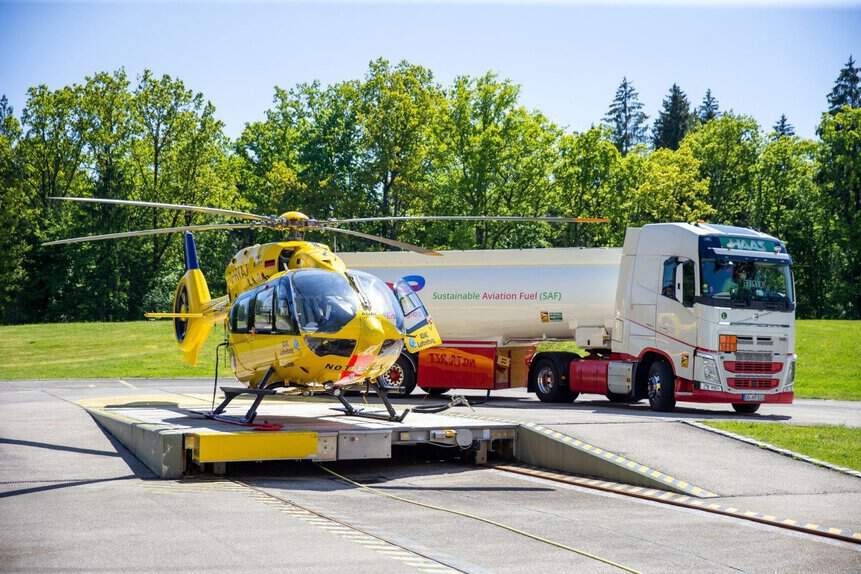Contributing to the development of a sustainable aviation fuel (SAF) production ecosystem is one of the main focuses of the Latin American and Caribbean Air Transport Association (ALTA).
According to the map released by the International Civil Aviation Organization, a UN entity, there are 24 active production facilities for SAF and other renewable fuels in the world. And that number is far from meeting the growing demand. We believe that it does not reach 1% of what we need. In addition, importing this fuel increases costs, making it difficult to purchase on a large scale.
The Latin American and Caribbean region has the necessary raw materials, but regulatory work is still essential to achieve AFS deployment. State policies that promote incentives for the design of raw materials, development of production infrastructure, distribution and financial structures for acquisition are important.
The aviation segment and ALTA members who deal with the matter are committed to promoting the development of inputs and mechanisms that can contribute to the decarbonization of the planet. Some of our members even aim to be among the largest biofuel producers and to be carbon neutral by 2030.
Ensuring sustainability is a major challenge that must be shared with the entire world. We depend on the alliance of the international market and the adoption of immediate measures to achieve these objectives. In Brazil, we see great potential to reach even higher heights in this endeavor: we have an extensive supply of raw materials to produce SAF, the airline industry is strong in the country and the infrastructure is modern.
We recently had meetings with representatives of the Ministry of Agriculture, Livestock and Food Supply (MAPA) and the Inter-American Institute for Cooperation on Agriculture (IICA) to seek partnerships aimed at presenting all the energy power of existing raw materials.
Furthermore, I believe that Brazil's position on this issue of sustainable fuel is extremely favorable, being the country with the highest air traffic in Latin America. However, it is important to highlight the need for consistent, transparent regulation with legal certainty to guarantee long-term investments precisely when we need it most: now. After all, the demand is there and we need quick action.
This is our commitment to be able to reduce environmental impacts. A topic that we constantly discuss in our ALTA Environment and Fuels Committees. We recognize that aviation needs to be more sustainable and we have a responsibility to look for ways to solve this problem. Investment in SAF will be essential, but I believe that this is just the beginning of several measures that we can adopt.
According to the last National Inventory of Atmospheric Emissions by the National Civil Aviation Agency (ANAC), in 2019, it points out that CO² emissions reached 17.763 Gg in 2018. However, with the entry of new aircraft and new technologies in the sector , the emission of pollutants has been dropping significantly.
Therefore, we are certain that with the arrival of SAF at the fuel pumps, we will be able to reduce emissions to zero. This is the reason why we advocate the adoption of an effective model to increasingly promote sustainable development and, so far, the North American system, avoiding the so-called “mandate” has been the most effective.
ALTA actively participates in discussions on the topic and encourages dialogue between industry and government. This is one of our roles: to be a link between good aviation practices. But above all, I reinforce the importance of public policies for investments in SAF. In February this year, the Ministry of Mines and Energy presented the Public Policy on Sustainable Aviation Fuel. All the premises for the introduction of the SAF in the energy matrix in Brazil are being carried out by the Fuel of the Future Program, in the subcommittee ProBioQAV. This work we are following.

We defend that the measures must be taken carefully, but as quickly as possible. Our priority is to generate less impact on the environment. However, the economic issue is also one of our great challenges. In order for more people to use the safest and most efficient means of transport, it is necessary to optimize the cost structure and fuel, items that impact ticket prices.
We cannot fail to remember that aviation kerosene (QAV) accumulates constant readjustments, and this year we already had an average increase of 64% in the first half. Add to this the inflationary process that is present in the region as a whole and it will be clear that we need to act quickly and together.
We are one of the great supporters for the adoption and production of SAF throughout Latin America and the Caribbean, but we cannot fail to point out that the value of the fuel must be at viable values for the market. High taxes and tax incentives have been one of the biggest challenges in this highly volatile scenario.
Efforts in research will also open doors and greater possibilities for the production of a quality product that follows the standards and certifications required by the airline industry. However, the cost to produce such fuel is high and the availability limited. Therefore, we believe that the growth in demand will allow the government and industry to walk together to accelerate and improve conditions. Everyone's involvement and commitment should still attract companies and more business.
Finally, I would like to reinforce that investing in SAF means generating new jobs in the sustainable energy industry. Everyone wins: the environment, companies and the population. Let's work together for a greener aviation and that this is just the beginning. This is one of our responsibilities.
Finally, I would like to point out that our Committee chose the city of Rio de Janeiro, in Brazil, for the Fuel Committee Meeting ALTA/IATA and for the 14th edition of ALTA Aviation Law Americas, which will be held in September. We are going to debate the issue of investments in SAF with the presence of ALTA members who deal with the subject and you are our guest to register: committees.alta.aero; and altaaviationlaw.com!
José Ricardo Botelho is CEO of HIGH and writes monthly to Aeroflap
Do you want to receive our news firsthand? Click Here and be part of our Group on Whatsapp or Telegram.

